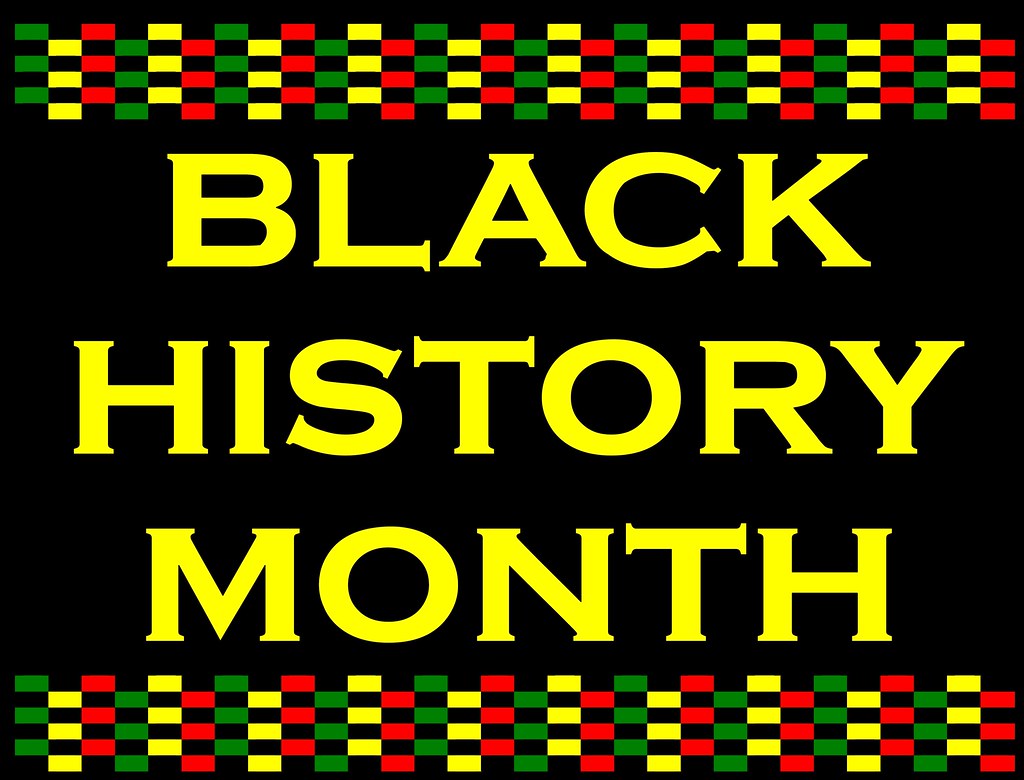By Lenny K. Mata Cuevas| Published by: February 12,2021
In a college with such a diverse population like Kean, Black History Month also represents an opportunity to raise questions about self-identity, empathy, and the difficult process of re-education.
Organizations like Black Leadership Union (B.L.U) or Pan-African Student Union (P.A.S.U.) have scheduled a series of events to promote the importance and responsibility to learn and teach about the impact of black excellence on American History.
“Black History Month is a time to educate the public and celebrate the contributions of Black Americans” Reads a post on PASU Instagram’s feed.

“Black History Month” by Enokson is licensed under CC BY-NC-ND 2.0
Vanessa Hubbard, president of the Black Leadership Union (BLU), said Black History Month is an opportunity to observe Black accomplishments.
“Black community is not monolithic. In celebration of Black History Month, we will be observing Black Trendsetters throughout history. We really want to explore the different influences that Black people have made throughout time and we are very excited to share this history with our members,” said Hubbard.
As well, this month is about accepting and embracing your African roots proudly by taking examples from great men and women that have changed the wheel of social construct. Dr. James Conyers, Director of Africana Studies at Kean University explained how he learned and was transformed by African Studies and the appreciation of Black History.
“From the moment that I saw Malcolm X and learned from Dr. John Henrik Clarke, I searched to limit Eurocentric thinking in my person to break through to Africancentric interpretations of reality,” said Dr. Conyers.
Likewise, Hubbard explained how the appreciation of Black History Month gives her a sense of identity and why it is important to continue learning and value your heritage.
“As a Black Woman, Black History Month is a time for me to celebrate my African American lineage,” she said. “History tells us that African Americans have played an integral role in the progression of this country. It keeps me connected to my identity, to my family, and to my community.”
Identity is one of the many important aspects of Black History Month. In a college with such a diverse population like Kean, Black History Month also represents an opportunity to raise questions about self-identity, empathy, and the difficult process of re-education.
Ethnic groups whose roots are significantly tied to black heritage and culture yet are rarely portrayed as a part of it. For instance, Latinx or Hispanic communities which according to datausa.io represent 26.8% of Kean’s enrollment.
Native Honduran Malcom Moreira, a Psychology major and president of the Pan African Union Student encourages Afro-Latinx groups to join the celebrations, research and be open minded about learning how black culture and history has shaped the community as well.

President of Pan African Union Student
“I am from a Latin American country but at the end of the day, I am still a black man, the only difference is I speak a different language.” Moreira said.
Leonel Gomez, a writer for the online magazine dominicanosusa.org wrote in his article “Why Latinos Should Also Celebrate Black History Month that “We need to stop differentiating ourselves from the African-American community… Black History Month is OUR month too; because black history is also OUR history.”
Perhaps, thanks to movements like Black Live Matters, other groups and communities are also more interested in learning about Black History. Arts Professor Jacqueline Silberbush believes that education can help to break the cycle of misinformation.
“I think people who may not have been as educated in Black History (current or past) are starting to become more aware. More people are willing to learn and are more interested in educating themselves,” Professor Silberbush said.
Nevertheless, much more can be done to celebrate and seek for the true meaning of Black History Month, explained Dr. Conyers.
“Black History Month is not something that we do once a year in February. Yes, Covid-19 has placed social restrictions on everyone. White supremacy placed social restrictions on African (Black) people for centuries that reverberate to this day,” said Dr. Conyers.
The Office of Diversity, Equity and Inclusion with student groups, organized almost two dozen virtual events. Whether it is a trivia night, a workshop or community services there is an activity for everyone who wishes to engage.
Rho Zeta Chapter has Black History Jeopardy; is a game “to find out who really knows about some of the people that have impacted our [Black] culture.” According to the event’s description on Cougar link.
Hubbard recommends Kean’s students to participate in events throughout the year as one of the main actions to keep the spirit of Black History Month.
“Be active with the Black organizations / student groups that are virtually available throughout the semester.” Hubbard explained.
Celebrating Black History Month requires action and compromise all year long. It is important for students keep the spirit and curiosity regardless of your cultural background. We hold the responsibility to not take for granted the richness of the Black culture.
“We wouldn’t be able to do a lot of things if it wasn’t for the bravery of our ancestors, if they didn’t stand for a change there wouldn’t be a change,” Moreira said.
“Black History Month challenges the myth of a people with a history. It is a primary factor in liberating the consciousness of Black people. Helps to give African people a sense of worth, dignity, and accomplishment.” Dr. Conyers said.

“Afro Latin somos” by somos2013 is licensed under CC BY-NC 2.0

You must be logged in to post a comment.